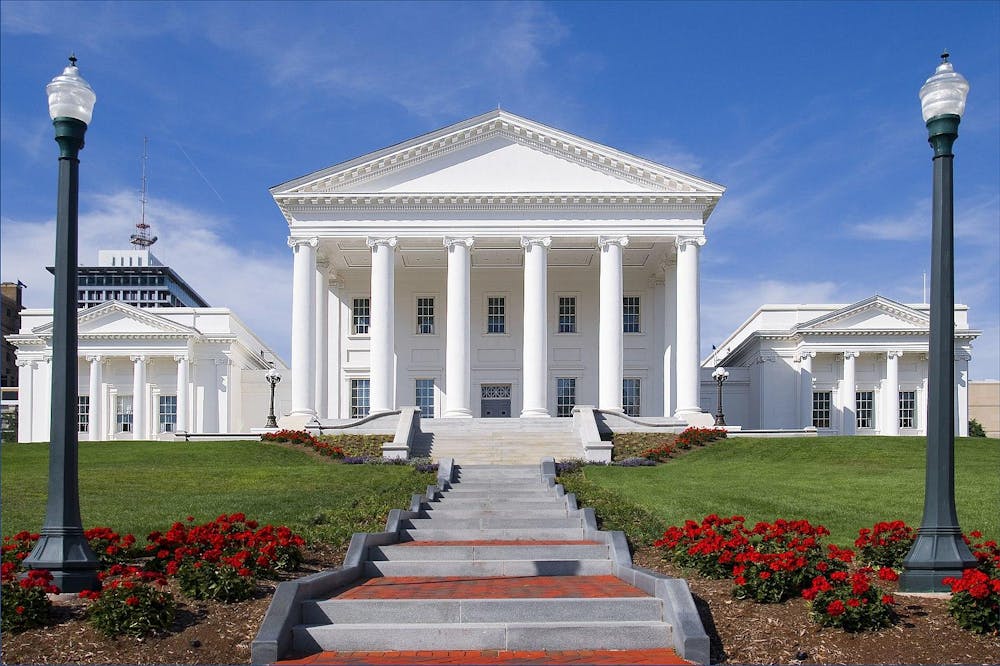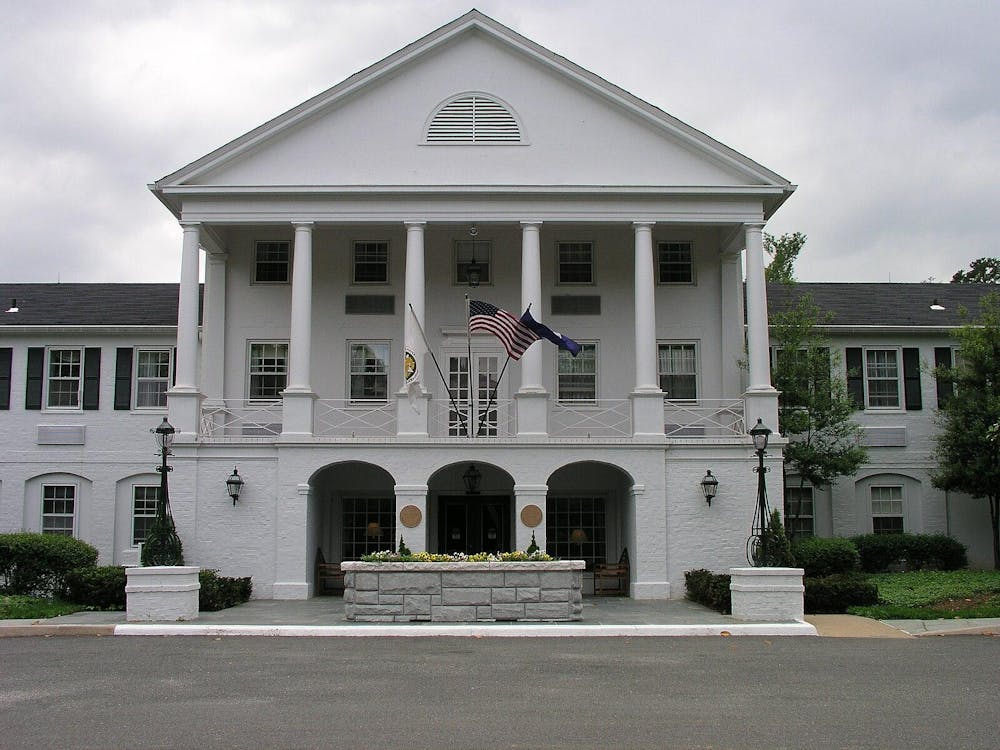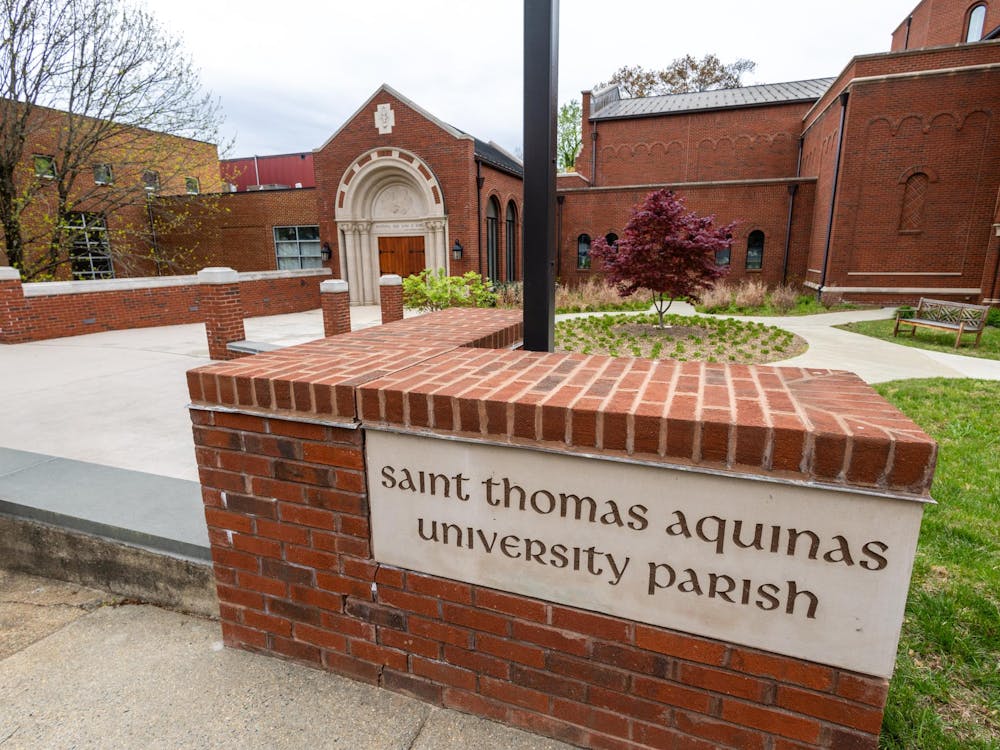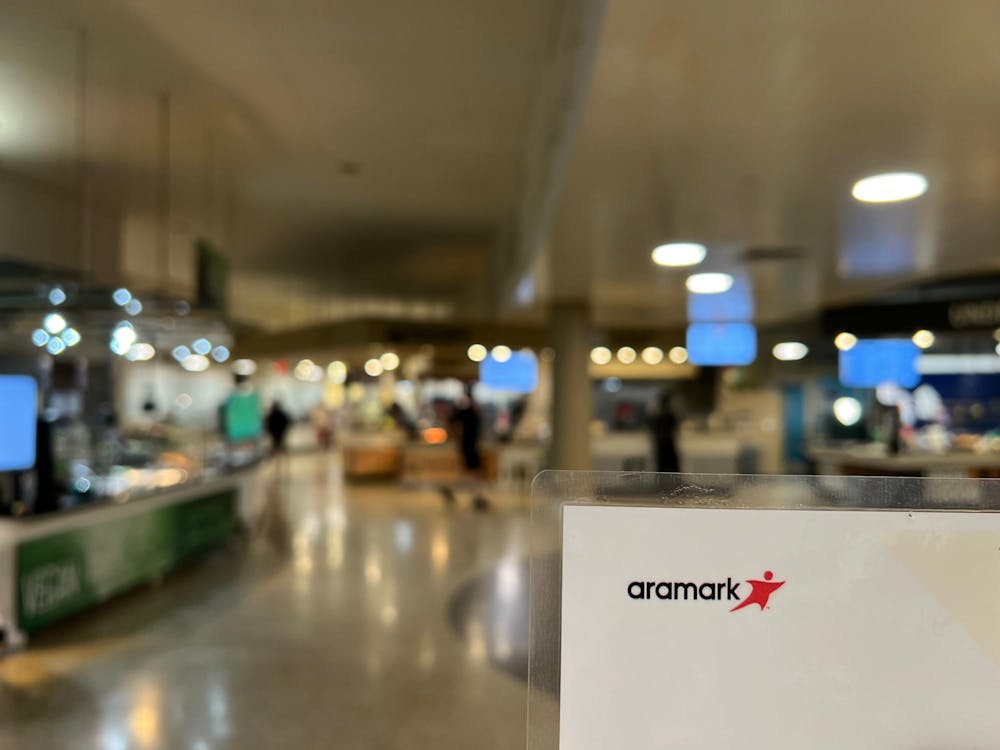As lawmakers return to Richmond for the 2025 legislative session, Republican Gov. Glenn Youngkin will once again experience divided control of the General Assembly, with Democrats holding majorities in both the State Senate and House of Delegates. As Youngkin retains veto power over any bills passed by the Assembly, Democrats require his support to achieve key priorities.
Lawmakers were able to file bills from July 15 to Jan. 17 and session was originally set to begin Jan. 8. After a delay due to the Richmond water crisis, during which a snowstorm the week before caused a citywide water shortage, the General Assembly began session Jan. 13. With this year being odd-numbered, the General Assembly will meet for 30 days — in even-numbered years, the Assembly holds session for 60 days. Enacted legislation will go into effect July 1.
Among the thousands of bills filed, there are a handful which have the potential to impact University students. These bills include a grant program to help end food insecurity on Virginia college campuses, an endowment to provide scholarships to students at 12 eligible Virginia public universities and various constitutional amendments.
Senate Bill 1016 was introduced by Danica Roem, D-Manassas and proposes a Hunger-Free Campus Grant program that will work to eliminate food insecurity on campuses of public institutions and eligible private institutions of higher education. In order for an institution to be eligible for the grant, they must create an on-campus food pantry or partner with a local food bank to provide students with information about food services in the area. If passed, this bill could directly affect the University by expanding funding for the existing food pantry on Grounds.
Eleanor Steiner, executive director of the University Community Food Pantry and fourth-year College student has been advocating for the bill for several months and said that the bill could be essential to the operations of the Pantry — which include providing essential food and hygiene items free of charge to mitigate financial hardships of University students and staff.
Steiner said her primary concern, as executive director, is identifying a sustainable funding source to ensure the Pantry remains a student resource for many years to come. The Pantry is currently funded by a 2018 donation from the Parents Fund, a committee supporting students and other on-Grounds initiatives. A grant program established by this bill could help support the Pantry’s functions long-term.
Steiner said she began advocating for SB 1016 when Robb Friedlander, director of advocacy at Swipe Out Hunger, reached out to her from the University of California, Los Angeles. Swipe Out Hunger is a nonprofit that works with colleges and universities to provide food resources to students, and at the time, Friedlander was advocating for the Hunger–Free Campus Bill and wanted insight from Steiner about food insecurity in Virginia.
Ultimately, Steiner and the Pantry invited Sen. Creigh Deeds, D-Charlottesville, and Del. Amy Laufer, D-Charlottesville, to the University to discuss food insecurity problems on Grounds and ask them to cosponsor this year’s bill in support of Roem, who originally introduced the bill.
“Getting [Deeds and Laufer] to sign on and be cosponsors was our role, just letting them know about the issue, because so many people don’t even know that it’s a problem,” Steiner said.
According to Steiner, student leaders from around Virginia will be meeting Jan. 29 in Richmond to advocate for SB 1016. Students will meet with the legislature and staff all day to discuss the need for the Hunger-Free Campus Grant — many college campuses report food insecurity levels around four times the national average, with students lacking easy access to affordable food.
This is not the first time the Virginia legislature has tried to address food insecurity at universities — during the 2024 session, the House passed House Bill 827 which required the State Council of Higher Education to survey every public institution of higher education to determine how they are addressing food insecurity. SCHEV reported that almost all of the institutions surveyed were aware of on-campus food insecurity and were actively working to address the issue.
The report also made recommendations for what more could be done to further these efforts, such as involving students in the implementation of services to combat food insecurity. SB 1016 is part of those increased efforts to address food insecurity through establishing the grant program.
Another proposed bill this session that would affect Virginia college students is SB 501 which deals with the creation of the Virginia College Opportunity Endowment and Fund and aims to support students at universities with smaller endowments. The bill was introduced by Sen. Scott Surovell, D-Fairfax and the Senate majority leader.
Students at 12 universities across the state, including the University’s College at Wise, would qualify to receive a scholarship, provided that they are also eligible for the Federal Pell Grant and remain residents of Virginia for eight years post-graduation.
The University’s main campus, William & Mary and Virginia Tech are not included in the 12 eligible universities.
“[U.Va., Virginia Tech and William & Mary] have lots of endowment funds and private funds that they’re able to draw on to attract high achieving, [Federal Pell Grant] eligible students,” Surovell said. “[These universities] have massive endowments because they only let white men in for their first one or 200 years. My bill is trying to make up for that history of discrimination.”
Republicans have also introduced several bills for the session, including HB 1588, proposed by Del. Wren Williams, R-Galax. This bill would prevent rate increases of public utilities during the months of November-February. Another bill focused on decreasing living costs, HB 1790 — introduced by Del. Robert Orrock, R-Spotsylvania — would authorize localities in Virginia to designate specific districts for affordable housing. Generally, in a Democratic controlled legislature, Republican bills have a small likelihood of passing unless they can garner bipartisan support.
This session, legislators will also consider amending the Constitution of Virginia. Surovell said there are three amendments especially important for college students to follow — all three of which were first approved in 2024 and continued to 2025 by a voice vote. Because constitutional amendments must be approved at two separate legislative sessions before being decided on by voters, the amendments will need to pass both houses this year.
In Virginia, amending the Constitution does not require the approval of the governor. The amendment language must be proposed twice to the General Assembly, with an election in between. If the bills pass both times in the Assembly, they are put on the ballot during a general election for state residents to vote on, which will be the case for these three amendments. If the amendments receive more than 50 percent of the vote, they will be enacted. The next general election will be held in November of this year.
The first of these amendments is House Joint Resolution 1, introduced by Del. Charniele Herring, D-Alexandria. HJ 1 is the Fundamental Right to Reproductive Freedom, which would prohibit the Virginia government from penalizing or prosecuting any individual for exercising their right to reproductive freedom.
HJ 2, introduced by Del. Elizabeth Bennett-Parker, D-Alexandria, is regarding voting rights. The bill proposes that convicted felons only be prohibited from voting during their incarceration period and are freely allowed to vote once released. Existing language requires the governor to restore the right to vote to a convicted felon.
Lastly, HJ 9, introduced by Mark Sickles, D-Fairfax, repeals the current language that marriage is only the union of one man and one woman and proposes language stating that marriage is a fundamental right and issuing a marriage license is not dependent on the sex, gender or race of the two parties.
As Youngkin’s final year in office begins, Democratic legislators anticipate that he will continue to veto bills passed during the 2025 session. Surovell said the Democrats are always open to collaboration on bills with the governor, but that Youngkin has shown little willingness to do the same.
“[Youngkin] has vetoed twice as many bills as any other governor in history.” Surovell said. “Our door is always open to talk, [but] I have yet to receive any offers to work on specific, significant policies together.”
After the session concludes, Youngkin will review the bills passed by legislators and decide whether to sign or veto them — the assembly can then attempt to override a veto or accept or reject the governor’s proposed amendments to bills. Session will last 30 days, but can be extended by up to 30 additional days if needed. Legislators will reconvene April 2 to consider Youngkin’s amendments and vetoes.







